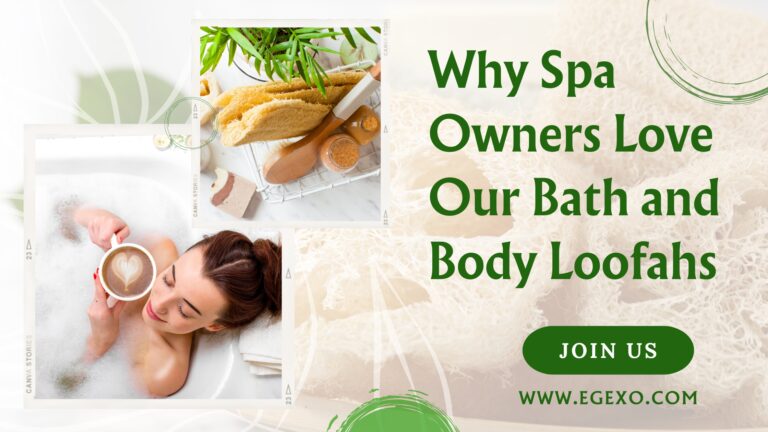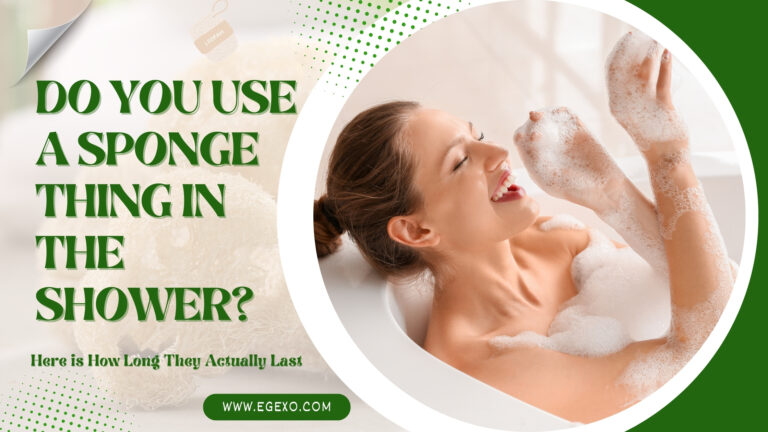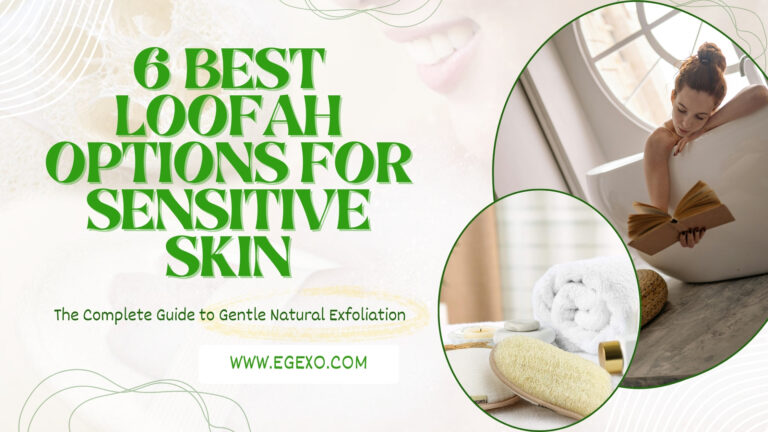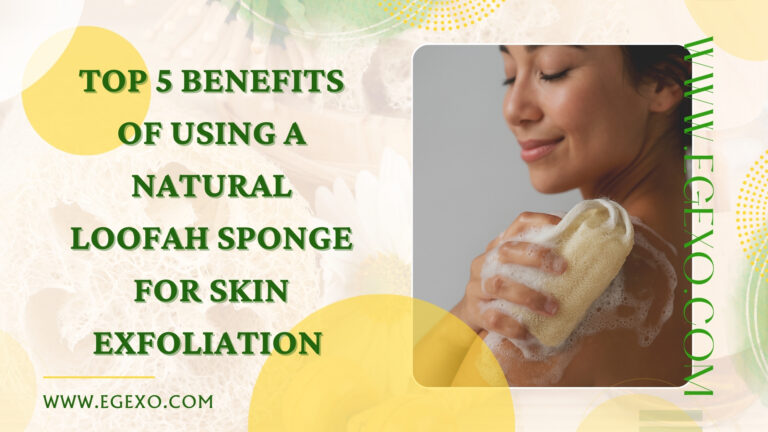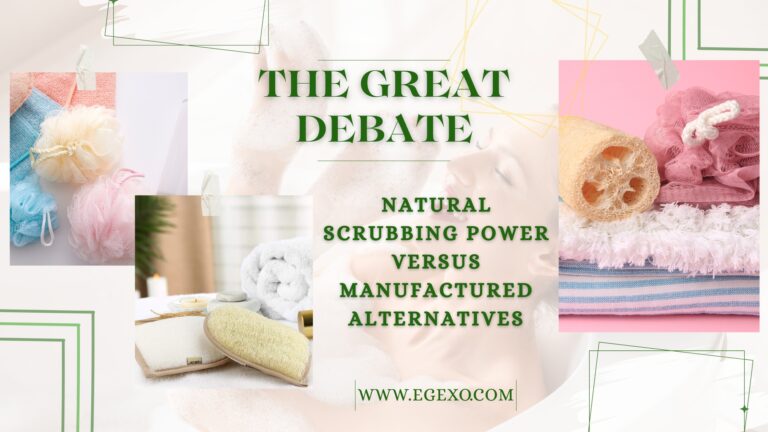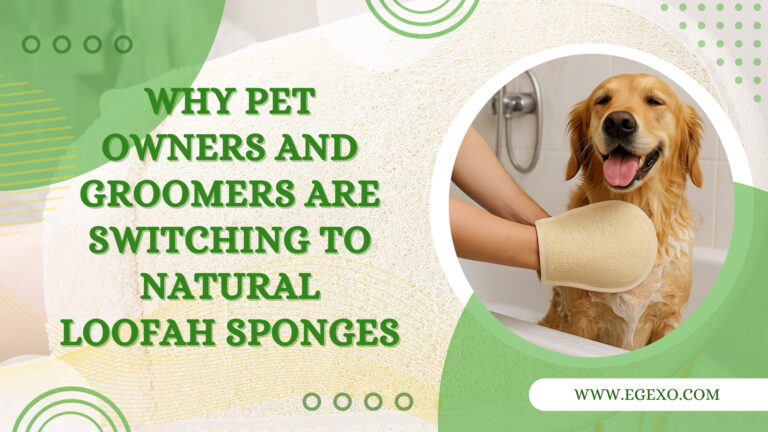Loofah Bulk: Your Complete Guide to Sourcing Natural Sponges for Business Success
Starting a business in the bath and body industry or looking to expand your existing product line with sustainable, natural alternatives? The journey often begins with one crucial decision: sourcing quality materials that your customers will love. When it comes to natural cleaning and exfoliation products, purchasing loofah bulk quantities opens doors to profitability, sustainability, and customer satisfaction that synthetic alternatives simply cannot match.
The natural loofah sponge has experienced a remarkable resurgence in recent years. Consumers across North America, Europe, Australia, and beyond are actively seeking eco-friendly alternatives to plastic bath poufs and synthetic kitchen scrubbers. This shift represents more than a passing trend. It reflects a fundamental change in how people think about personal care, household cleaning, and environmental responsibility.
For retailers, distributors, wholesalers, and entrepreneurs, this presents an extraordinary opportunity. Understanding how to source, evaluate, and market loofah bulk products can transform a simple business idea into a thriving enterprise. Whether you are operating a boutique spa in Toronto, managing a health store chain across the European Union, or launching an online marketplace in Sydney, the principles of successful loofah sourcing remain consistent.
What Makes Natural Loofah the Superior Choice?
Before diving into the specifics of bulk purchasing, it is essential to understand why natural loofah stands apart from every alternative on the market. The answer lies in the unique combination of sustainability, performance, and versatility that only this plant-based sponge can deliver.
Natural loofah grows as a gourd in the cucumber family. Farmers cultivate the plant, harvest mature gourds, and process them into the fibrous sponges we recognize today. This agricultural origin means every loofah sponge is completely biodegradable, compostable, and renewable. Unlike synthetic sponges made from petroleum-based materials, loofahs return to the earth without leaving harmful residues or microplastics behind.
The texture of a luffa sponge provides another compelling advantage. The naturally occurring fibrous structure creates the perfect balance between gentle exfoliation and effective cleaning. Dermatologists often recommend natural exfoliating sponges for improving circulation, removing dead skin cells, and promoting healthier skin texture. The same properties that make loofahs excellent for personal care translate beautifully to household applications, from scrubbing dishes to cleaning bathroom surfaces.
When you examine the quality standards that define premium natural loofah, you discover why Egyptian loofah has earned its reputation as the gold standard. The climate and soil conditions along the Nile Valley produce loofahs with superior fiber density, durability, and texture. This geographic advantage has established Egypt as the premier source for wholesale loofah worldwide.
Why Buying Loofah Bulk Makes Business Sense
The economics of bulk purchasing create immediate advantages for businesses at every scale. Volume pricing dramatically reduces per-unit costs, allowing you to maintain healthy profit margins while offering competitive retail prices. This pricing structure becomes particularly important when competing against established brands or building a customer base in price-sensitive markets.
Beyond cost savings, buying loofah bulk ensures consistent inventory availability. Natural products like loofahs have seasonal growing cycles and processing timelines. When you establish a relationship with a reliable loofah supplier and order in appropriate volumes, you protect your business from supply interruptions that could disappoint customers or damage your reputation.
Consider the practical scenario faced by Emma, who owns a small chain of organic beauty stores in Melbourne. Initially, she ordered small quantities of loofah sponges from multiple sources, constantly dealing with stockouts and quality inconsistencies. After switching to a single loofah wholesale partner and ordering in bulk, her costs decreased by 40 percent, her inventory management simplified dramatically, and customer complaints about product quality disappeared entirely. The transition to bulk purchasing transformed what had been a problematic product category into one of her most profitable and reliable offerings.
The farm to export process followed by established suppliers ensures quality control at every stage. When you work directly with manufacturers who oversee growing, harvesting, processing, and quality inspection, you gain confidence that every shipment will meet your standards. This consistency becomes invaluable as you build your brand reputation.
Understanding Different Types of Loofah Products for Bulk Purchase
The diversity within the loofah product category surprises many first-time buyers. Understanding these variations helps you select the right products for your target market and business model.
Bath and body loofah products represent the most familiar category. These include traditional cylindrical loofahs in various lengths, loofah pads for facial exfoliation, loofah bath mitts, and combination products that incorporate loofah with soap or other materials. Each format serves specific customer preferences and use cases. Some shoppers prefer handheld pads for convenience, while others want full-length loofahs for back exfoliation. Offering variety within your product line captures a broader customer base.
Kitchen and household loofah products address the growing demand for plastic-free cleaning solutions. These loofahs are specifically processed and shaped for dish washing, countertop scrubbing, and general household cleaning. The natural abrasiveness removes stuck-on food without scratching cookware, while the antimicrobial properties of dried loofah inhibit bacterial growth between uses. Marketing these products to environmentally conscious homemakers and zero-waste advocates creates additional revenue streams beyond the bath and body category.
Raw loofah scrubbers provide the most versatile option for creative businesses. These unprocessed or minimally processed loofahs can be cut, shaped, and customized for specific applications. Craft businesses use them for natural décor items, while innovative retailers develop unique product concepts. The flexibility of raw materials enables product differentiation that sets your offerings apart from competitors selling standard formats.
An emerging category gaining traction involves loofah pet and spa grooming products. Pet owners increasingly seek natural grooming tools, and loofahs provide gentle exfoliation that dogs and cats tolerate well during bathing. Spas and massage therapists incorporate loofahs into treatment protocols for body scrubs and exfoliation services. Recognizing these niche applications helps you identify underserved markets with significant growth potential.
How to Identify Quality When Purchasing Loofah Wholesale
Not all loofah suppliers deliver equal quality. Learning to evaluate potential partners protects your business from costly mistakes and ensures customer satisfaction.
Color consistency indicates proper processing and storage. High-quality natural loofahs display uniform, natural tones ranging from light cream to golden brown. Significant color variations within a single batch, unusual darkening, or mold spots signal processing problems or inadequate storage conditions. Premium suppliers maintain controlled environments that preserve loofah integrity from harvest through shipping.
Fiber density determines durability and user experience. Gently squeeze the loofah and assess its springiness. Quality loofahs compress under pressure but quickly return to their original shape. Brittle, crumbly fibers or excessive looseness indicate poor growing conditions, premature harvesting, or degradation during storage. The best loofah should feel substantial without being excessively hard.
Texture uniformity matters for both aesthetics and function. Run your hand across the loofah surface, feeling for consistent fiber distribution. Bare patches, extremely rough areas, or irregular formations create subpar user experiences and increase product returns. Established suppliers implement quality inspection processes that remove defective pieces before shipping.
Moisture content requires attention even with dried products. Loofahs should feel completely dry without dampness or mustiness. Any moisture presence during storage promotes mold growth and fiber degradation. Reputable loofah wholesale operations ensure thorough drying and moisture-proof packaging that maintains product quality during international shipping.
Working with suppliers who document their quality standards provides additional assurance. Transparent partners share information about growing practices, processing methods, and quality control procedures. This openness demonstrates professionalism and commitment to delivering products that meet international market expectations.
Navigating the Global Loofah Supply Chain
Understanding where loofahs originate and how they reach your warehouse influences every aspect of your sourcing strategy. Geography, agriculture, processing capabilities, and logistics networks all play crucial roles in determining product quality, pricing, and reliability.
Egypt dominates global loofah production for compelling reasons. The Nile Delta region provides ideal growing conditions with the right combination of heat, water availability, and soil composition. Generations of farmers have refined cultivation techniques specific to loofah production. This accumulated expertise produces loofahs with characteristics that growers in other regions struggle to replicate.
The processing infrastructure in Egypt reflects this specialization. Dedicated facilities clean, dry, sort, and prepare loofahs using methods optimized over decades. Workers trained specifically in loofah processing identify quality variations that automated systems might miss. This human element ensures consistent results that justify Egypt’s reputation for producing the best loofah available globally.
When evaluating potential suppliers, consider their proximity to growing regions. Direct relationships between suppliers and farmers eliminate intermediary markups while ensuring fresher products. Companies that operate their own processing facilities maintain tighter quality control compared to brokers who source from multiple unrelated producers.
Shipping logistics significantly impact your total costs and timing. Most bulk loofah shipments travel by ocean freight, with transit times varying based on your location. Businesses in the United States East Coast, Canadian ports, or European Union countries typically receive shipments faster than those in Australia, New Zealand, or Brazil. Understanding these timelines helps you plan inventory levels and avoid stockouts during peak selling seasons.
Customs clearance procedures vary by country and require proper documentation. Experienced loofah suppliers handle export paperwork efficiently, ensuring smooth processing at destination ports. Ask potential partners about their experience shipping to your specific country and request references from existing clients in your region.
Building Your Loofah Product Line Strategy
Successful businesses recognize that purchasing loofah bulk represents just the beginning. How you position, package, and present these products determines your market success.
Product differentiation starts with understanding your target customer. Are you selling primarily to luxury spa clients who prioritize premium quality and beautiful presentation? Budget-conscious families seeking affordable, sustainable alternatives? Zero-waste advocates who value minimal packaging? Each audience requires different product selections, packaging approaches, and marketing messages.
Many businesses enhance standard loofah products through value-added services. Private labeling allows you to build brand recognition and customer loyalty. Rather than reselling generic products, you create a distinctive brand identity that customers remember and seek out. Premium packaging, informative hang tags, and cohesive branding elements transform commodity loofahs into branded products commanding higher prices.
Custom product design takes differentiation further. Working with experienced suppliers, you can develop unique shapes, sizes, and product combinations unavailable from competitors. A boutique hotel might commission loofahs in specific dimensions with embossed logos. A natural cosmetics brand could develop combination products incorporating their signature soap formulations with complementary loofah shapes.
Product bundling creates additional value while increasing average transaction sizes. Combine loofah sponges with complementary items like natural soaps, body oils, or storage bags. These curated sets appeal to gift buyers and customers seeking complete solutions rather than individual components.
Educational content supports sales by helping customers understand proper use and care. Many people have never used natural loofahs and appreciate guidance about softening new sponges, optimal replacement timing, and cleaning between uses. Providing this information through packaging inserts, website content, or social media positions your business as a helpful expert rather than merely a product vendor.
What Questions Should You Ask Potential Loofah Suppliers?
Due diligence during supplier selection prevents future problems and establishes productive long-term partnerships. Ask these essential questions before committing to large orders.
How long have you been in the loofah business? Experience matters significantly with natural agricultural products. Suppliers with decades of operations have weathered challenges, refined their processes, and established reliable sourcing networks. Newer entrants may offer attractive pricing but lack the systems to ensure consistency.
Can you provide samples before I place bulk orders? Legitimate suppliers willingly send product samples, understanding that you need to evaluate quality firsthand. Sample programs demonstrate confidence in product quality while allowing you to test market response before investing in large quantities. Access sample request services to evaluate products risk-free.
What minimum order quantities do you require? MOQ requirements vary widely among suppliers. Some require container loads of 10,000 or more units, while others accommodate smaller businesses with lower thresholds. Ensure the minimums align with your storage capacity, cash flow, and realistic sales projections.
What certifications or quality documentation can you provide? International buyers increasingly require documentation verifying product quality, proper processing, and compliance with regulations. Suppliers should provide certificates of origin, phytosanitary certificates for agricultural products, and quality inspection reports.
How do you handle quality issues or product defects? Even excellent suppliers occasionally encounter problems. What matters is how they respond. Ask about return policies, quality guarantees, and dispute resolution procedures. References from existing customers provide valuable insights into how suppliers handle challenges.
What payment terms and methods do you accept? Payment structures vary from full advance payment to deposits with balance due before shipping. Understand the financial commitment required and ensure it fits your budget. Established suppliers often offer more flexible terms for repeat customers as trust develops.
What is your typical production and shipping timeline? Lead times from order confirmation to delivery impact your inventory planning. Understanding realistic timelines prevents overpromising to your customers or running out of stock during high-demand periods.
Smart Strategies for First-Time Bulk Loofah Buyers
Entering the loofah wholesale market without experience can feel overwhelming. These strategies help minimize risk while you develop expertise and market understanding.
Start with manageable volumes rather than maximum container loads. While per-unit costs decrease with larger orders, your initial priority should be validating product quality and market demand. Order enough inventory to properly test your market, but not so much that storage becomes problematic or capital gets tied up indefinitely.
Diversify your initial product selection to identify customer preferences. Rather than ordering 1,000 units of a single item, purchase smaller quantities across several product types. This approach reveals which formats, sizes, and price points resonate with your specific customer base. Future orders can concentrate on proven sellers while discontinuing underperformers.
Test pricing strategies to optimize profitability without sacrificing competitiveness. Natural loofahs support premium pricing when properly positioned, but finding the right balance requires experimentation. Monitor how price changes affect sales volume and adjust accordingly.
Develop relationships with your supplier beyond transactional interactions. Communication quality often distinguishes excellent suppliers from mediocre ones. Responsive partners who answer questions thoroughly, provide market insights, and work collaboratively become invaluable assets as your business grows.
Document everything during your initial orders. Track quality observations, customer feedback, sales performance, and any issues encountered. This data informs future purchasing decisions and helps you refine your approach based on actual experience rather than assumptions.
Connect with the supplier team directly to discuss your specific needs and receive personalized guidance. Experienced suppliers appreciate working with serious buyers and often provide valuable advice that helps new businesses avoid common mistakes.
Seasonal Considerations and Inventory Planning
Natural agricultural products follow seasonal patterns that affect availability and pricing. Smart inventory planning accounts for these cycles while ensuring consistent product availability for your customers.
Loofah harvesting typically occurs during specific times of year based on growing seasons. While processing and storage extend availability year-round, understanding harvest timing helps you anticipate potential supply fluctuations. Working with suppliers who maintain adequate processed inventory buffers protects your business from seasonal shortages.
Demand patterns for bath and body products often peak during certain periods. Holiday shopping seasons, particularly November through December in Western markets, generate significantly higher sales volumes. Summer months see increased demand for exfoliating products as people focus on beach-ready skin. Planning inventory levels around these predictable patterns prevents stockouts during your most profitable periods.
Budget constraints may tempt businesses to minimize inventory carrying costs, but this approach risks losing sales when supply chain delays occur. International shipping faces occasional disruptions from port congestion, customs delays, weather events, or geopolitical issues. Maintaining buffer stock protects against these unpredictable challenges.
Consider implementing a reorder point system that triggers new purchase orders when inventory falls to predetermined levels. This systematic approach prevents the chaos of emergency ordering while ensuring you never completely run out of stock. Calculate reorder points based on average sales velocity plus supplier lead time plus a safety buffer.
Marketing Your Natural Loofah Products Effectively
Sourcing quality products at attractive prices means nothing if customers don’t discover and purchase them. Effective marketing transforms bulk loofah inventory into profitable sales.
Emphasize sustainability and environmental benefits prominently in your messaging. Today’s consumers, particularly in markets like Canada, the European Union, Australia, and the United States, actively seek plastic-free alternatives. Position natural loofahs as the obvious choice for environmentally conscious shoppers who refuse to compromise on performance.
Educate customers about the Egyptian loofah advantage. Most consumers don’t understand why source matters for natural sponges. Sharing information about Egypt’s ideal growing conditions, processing expertise, and quality reputation differentiates your products from generic alternatives.
Leverage visual content showcasing product quality and versatility. High-quality photographs and videos demonstrating proper use, texture, and results help online shoppers understand what they’re purchasing. User-generated content from satisfied customers provides authentic social proof that influences buying decisions.
Address common concerns proactively. New loofah users often worry about initial stiffness, proper softening techniques, or how long products last. Providing clear, helpful information removes barriers to purchase while positioning your business as a knowledgeable resource.
Develop content around broader topics that attract your target audience. Blog posts about sustainable living, natural beauty routines, zero-waste kitchen practices, or eco-friendly pet care draw relevant traffic while naturally incorporating your loofah products as solutions.
Partner with complementary businesses for cross-promotion. Natural soap makers, organic skincare brands, zero-waste shops, and eco-friendly lifestyle influencers share your target audience. Collaborative marketing expands your reach without proportional cost increases.
How Private Labeling Elevates Your Loofah Business
Generic product reselling faces intense competition and limited profit margins. Private labeling transforms you from a commodity reseller into a distinctive brand with pricing power and customer loyalty.
Brand identity creates emotional connections that transcend product features. When customers recognize and trust your brand, they become less price-sensitive and more likely to choose your products over alternatives. This loyalty becomes particularly valuable in competitive markets where numerous sellers offer similar products.
Custom packaging communicates quality and professionalism. Beautiful, informative packaging justifies premium pricing while creating memorable unboxing experiences that customers share on social media. Thoughtful design details demonstrate that you care about every aspect of the customer experience.
Private labeling enables you to tell your brand story. Why did you start this business? What values guide your product selection? How do you ensure quality? These narratives resonate with customers seeking authentic connections with the businesses they support.
Legal protection through trademarking prevents competitors from copying your brand identity. Once established, your brand becomes a valuable business asset that appreciates over time and could eventually be sold if you decide to exit the business.
The investment required for private labeling varies based on your approach. Simple branded packaging with stickers or hang tags requires minimal setup costs. Full custom packaging with printed boxes, inserts, and comprehensive branding involves higher initial investment but delivers stronger market impact.
Understanding Import Regulations and Compliance
International trade involves regulatory requirements that vary by destination country. Understanding these obligations prevents costly delays and ensures smooth customs clearance.
Phytosanitary certificates verify that agricultural products meet plant health standards. Since loofahs are plant-based, many countries require these certificates confirming proper processing and freedom from pests or diseases. Experienced exporters provide necessary documentation as standard procedure.
Product safety regulations apply to items intended for personal care use. While natural loofahs are inherently safe, ensure your supplier follows proper processing protocols that remove any potential contaminants. Documentation proving compliance with safety standards protects your business from liability issues.
Labeling requirements specify mandatory information that must appear on product packaging. These typically include country of origin, material composition, care instructions, and warnings if applicable. Requirements vary by market, so verify specific regulations for your target countries.
Import duties and taxes affect your total landed costs. Research applicable rates for your destination country and factor these costs into pricing calculations. Some countries offer preferential duty rates for natural products or goods from specific trading partners.
Working with suppliers experienced in international shipping simplifies compliance significantly. They understand documentation requirements, have established relationships with freight forwarders, and can anticipate potential issues before they cause problems. The wholesale team can guide you through import requirements specific to your location.
Real Success Stories from Loofah Bulk Buyers
Learning from others who have successfully built businesses around natural loofahs provides valuable insights and inspiration.
Jennifer launched an online zero-waste shop in Portland, initially offering a small selection of bulk foods and reusable containers. When she added natural loofahs to her product line, customer response exceeded expectations. Within six months, bath and body products became her highest-margin category. She attributes this success to thorough customer education about environmental benefits and product quality. By ordering loofah bulk quantities directly from Egyptian suppliers, she maintained prices competitive with synthetic alternatives while earning substantially higher profits.
Marcus operates a distribution business supplying independent health food stores across the United Kingdom. After attending a trade show where natural cleaning products generated significant interest, he investigated adding loofahs to his catalogue. Initial research revealed that existing UK suppliers offered limited selection at high prices. By establishing a direct relationship with a manufacturer and importing container loads, Marcus undercut competitor pricing by 30 percent while offering superior quality. Within two years, natural cleaning products became his fastest-growing category, with loofahs leading sales.
Sofia manages purchasing for a hotel chain in Brazil seeking to enhance their sustainability credentials. Replacing disposable plastic bath amenities with natural alternatives aligned with corporate environmental goals while appealing to eco-conscious travelers. After testing samples from multiple suppliers, she selected Egyptian loofahs for their consistent quality and favorable pricing. The program launched in 20 properties, with guest feedback overwhelmingly positive. The success led to expansion across all 50 properties, with loofahs becoming a distinctive amenity that guests frequently mention in reviews.
These examples share common themes: direct sourcing from experienced suppliers, commitment to quality, clear understanding of target customers, and effective communication of product benefits. None of these businesses started as loofah experts. They identified opportunities, did their research, partnered with reliable suppliers, and executed well.
Future Trends Shaping the Loofah Market
Understanding emerging trends helps you position your business for continued growth as markets evolve.
Plastic reduction initiatives continue accelerating globally. Government regulations increasingly restrict single-use plastics, while corporate sustainability commitments drive demand for natural alternatives. This regulatory environment creates tailwinds for natural loofah products that will likely strengthen over the coming decade.
Customization and personalization become increasingly important as consumers seek unique products reflecting individual preferences. Businesses offering customized loofah products, whether through personalized packaging, unique sizes, or combination products, differentiate themselves in crowded markets.
Subscription models create predictable revenue streams while building customer loyalty. Monthly or quarterly loofah deliveries appeal to customers who value convenience and want to ensure regular product replacement for optimal hygiene.
Wellness and self-care trends expand beyond traditional demographics. Men increasingly embrace skincare and grooming routines that include exfoliation. This expanding market presents opportunities for products and marketing specifically designed for male consumers.
Pet care naturalization mirrors trends in human personal care. Pet owners apply the same values driving their personal purchasing decisions to products for their animals. Natural grooming products, including loofahs designed specifically for pet bathing, represent an underserved niche with significant growth potential.
Why Egyptian Loofah Suppliers Lead the Global Market
Egypt’s dominance in loofah production reflects advantages that competitors in other regions cannot easily replicate. Understanding these factors explains why sourcing from Egyptian suppliers delivers superior results.
Climate conditions in the Nile Delta provide ideal growing environments. The combination of intense sunshine, consistent temperatures, and reliable water availability produces robust plants with optimal fiber development. Attempts to cultivate loofahs in other regions often yield inferior results due to suboptimal growing conditions.
Agricultural expertise passed through generations creates institutional knowledge that newer producing regions lack. Egyptian farmers understand precise timing for planting, irrigation management, pest control, and harvesting that maximizes quality. This accumulated wisdom produces consistently superior results.
Processing infrastructure specific to loofah production exists throughout Egyptian growing regions. Dedicated facilities, specialized equipment, and trained workers ensure proper cleaning, drying, and sorting. This infrastructure investment reflects the importance of loofah production to regional economies.
Export experience means Egyptian suppliers understand international market requirements. They maintain proper certifications, provide necessary documentation, and follow quality standards expected by buyers worldwide. This professionalism eliminates many headaches that plague businesses working with less experienced suppliers.
Discovering why established suppliers maintain market leadership provides confidence in your sourcing decisions. Track records matter significantly with natural products where quality variations can damage your business reputation.
Frequently Asked Questions About Buying Loofah Bulk
What quantities qualify as bulk loofah purchases?
Bulk quantities typically start around 500 to 1,000 units, though definitions vary among suppliers. Volume pricing tiers often exist at 1,000, 5,000, 10,000 units and beyond. Larger orders receive better per-unit pricing, but you should order quantities aligned with your storage capacity and realistic sales projections rather than simply maximizing discounts.
How should I store bulk loofah inventory?
Store loofahs in cool, dry locations with good air circulation. Avoid damp basements or areas with temperature extremes. Keep products in original packaging until needed to protect from dust and pests. Proper storage maintains quality indefinitely, as thoroughly dried loofahs do not degrade when protected from moisture.
What is the typical shelf life of natural loofah products?
Properly processed and stored natural loofahs have essentially unlimited shelf life. Unlike products with chemical ingredients that degrade over time, dried loofah remains stable for years. This durability means bulk purchasing does not create expiration concerns common with other natural products.
Can I request custom sizes or shapes when ordering in bulk?
Yes, most established suppliers offer customization services for bulk orders. Custom cutting, shaping, packaging, and even product design become economically feasible with adequate order volumes. Discuss your specific requirements when requesting quotes to understand minimum quantities required for custom work.
How do I determine the right product mix for my first bulk order?
Start with a diverse selection across different product categories and price points. Order smaller quantities of multiple items rather than large quantities of few items. This approach lets you test market response before committing heavily to specific products. Future orders can concentrate on proven bestsellers.
What are typical lead times from order to delivery?
Lead times vary based on product availability, customization requirements, and shipping distance. Standard products typically ship within 1-2 weeks. Ocean freight to North America or Europe requires 3-5 weeks, while destinations like Australia or Brazil may need 5-7 weeks. Plan inventory accordingly, especially before peak seasons.
Should I work with one supplier or diversify across multiple sources?
Most successful businesses establish primary relationships with single reliable suppliers while maintaining backup options. This approach provides consistency and often better pricing through volume concentration, while the backup prevents complete vulnerability to supply interruptions. Avoid spreading orders too thin across many suppliers, which eliminates volume advantages and complicates quality control.
How can I verify supplier quality claims before placing large orders?
Request samples and evaluate them thoroughly. Ask for references from existing customers in your market. Review available certifications and quality documentation. Start with smaller trial orders before committing to maximum volumes. Legitimate suppliers welcome this cautious approach and work to earn your trust through demonstrated performance.
What profit margins can I expect when reselling bulk loofah products?
Margins vary significantly based on your market positioning, but well-run businesses typically achieve 50-100 percent markup on natural loofah products. Premium positioning with private labeling, beautiful packaging, and strong branding supports higher margins. Discount-oriented approaches work with lower margins but higher volumes.
Are natural loofahs really better than synthetic alternatives?
Absolutely. Natural loofahs provide superior exfoliation, are completely biodegradable, contain no microplastics, and perform excellently for both personal care and cleaning applications. While synthetic sponges may cost less initially, they contribute to environmental pollution and lack the performance characteristics of quality natural loofahs. For businesses, natural loofahs offer better differentiation and appeal to growing consumer segments prioritizing sustainability.
Taking Your Next Steps Toward Loofah Business Success
The opportunity in natural loofah products continues expanding as consumer awareness grows and environmental regulations tighten. Businesses that establish strong supplier relationships, source quality products, and effectively communicate value to customers will thrive in this growing market.
Your journey begins with education and research. Explore the complete product catalogue to understand available options. Review information about quality standards and processing to develop evaluation criteria. Learn from insights shared through the industry blog covering trends, applications, and business strategies.
When ready to move forward, request samples to evaluate quality firsthand. Testing products before bulk purchasing protects your investment and ensures customer satisfaction. Contact experienced suppliers to discuss your specific needs, ask questions, and develop a sourcing strategy aligned with your business goals.
Remember that successful businesses are built on solid foundations. Invest time in understanding your market, sourcing quality products, and developing effective marketing. The natural loofah market rewards businesses that prioritize quality and customer education over those seeking quick profits through inferior products.
The combination of growing environmental awareness, proven product performance, and attractive business economics makes loofah bulk purchasing a smart strategic move. Whether you are launching a new venture or expanding an existing business, natural loofahs offer sustainable profitability that aligns doing good with doing well.
Your customers are already searching for natural alternatives to plastic bath and cleaning products. Position your business as the solution provider they have been seeking. Start with quality sourcing, add thoughtful positioning and education, and watch as natural loofahs become a cornerstone of your business success.


